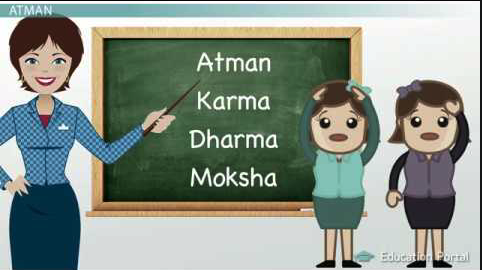Simple answers to your questions on Hinduism are provided here.
Use the search button (top right on desktop, top left on smartphones) to find specific topics of interest. At the bottom of each answer, check the “Tags” section for related topics. To learn more about this Q&A project, click [here].

On Hinduism
You can also download an earlier collection: 300QAs on Hinduism (PDF). Thank you.

08. Bhakti
The words bhakti (devotion), bhagavan (god), bhakta (devotee) and bhajan (devotional song) all share the Sanskrit root “bhaj”, which means sharing and participation. The root connotes intense devotion by emphasizing personal experience, relationship, emotional engagement, and expression. A spiritual aspirant feels deep love, or “bhakti,” towards the Divine.
The goal of cultivating Bhakti in one’s heart is the ultimate experience of love that dissolves all boundaries between the individual and the external world, feeling a sense of divine oneness and harmony with all living beings.
Bhakti comes in many flavors, and causes a devotee to completely forget oneself. According to some Hindu schools of thought, there are five kinds of underlying emotions that can arise when feeling devotion towards the Lord: Shanta (peaceful devotion), Dasya (servitude), Sakhya (friendship), Vatsalya (parental love) and Madhurya (romantic love).
Historically, the expression of the beautiful sentiment of Bhakti brought about a change in the way religion was accessed in India. It made religion available to all people regardless of gender, language, or social status. We have evidence of this as early as in the 5th century in South India, with the devotional poetry of the Tamil Nayanars (Shiva worshippers) and Alvars (Vishnu worshippers). Common themes in these poems include love, service and grace. This marked the beginning of the Bhakti Movement, a time period which gave voice to countless devoted men and women throughout the Indian Subcontinent. The devotional songs of these poet-saints, such as Kabir, Mirabai, and Saint Thyagaraja live long after their physical passing, carrying on the spirit of their soulful love and longing for God.
In modern times, the path of devotion (bhakti marga or yoga) is followed by many Hindus worldwide. This is practiced in conjunction with the path of knowledge (jnana marga). While a devotee enjoys devotional songs that help reflect on their personal relationship with Lord Krishna when in bhakti marga, another day they might engage in philosophical discussions on life’s most meaningful questions in the spirit of jnana marga (Knowledge Yoga).
Other reading material: Bhakti Yoga,
Relevant videos: Swami Nikhil Anand Hinduism Q & A: What is Devotion or Bhakti , Bhakti on a street of San Francisco
Contributor: Lakshmi Subramanian
Location of this post (8a): https://www.hinduspeakers.org/ufaqs/what-is-devotion-or-bhakti/
God always answers prayers of his devotees in a manner that is most beneficial for that individual in the long run. Like parents, God also likes to see his children happy. He feels very good when he sees his children and devotees happy. Many of our saints have said that He is also very compassionate.
Remember, whatever happens, happens for one’s benefit.
The answers may not exactly be what we want to see at the time of the request, but God can see ahead, in the future and the answer will in the long run be more for the person’s benefit and spiritual growth. This may be difficult to accept, but having faith in God in these situations is necessary. You have to then ask God, to give you strength to accept the decision. So do not hesitate to ask Him whatever you want.
Other reading material:
Relevant videos: Swami Nikhilnand Hinduism Q & A: Does God Answer Our Prayers
Contributor: Dr. Jyoti Lulla
Location of this file (8b): https://www.hinduspeakers.org/ufaqs/does-god-answer-our-prayers/
